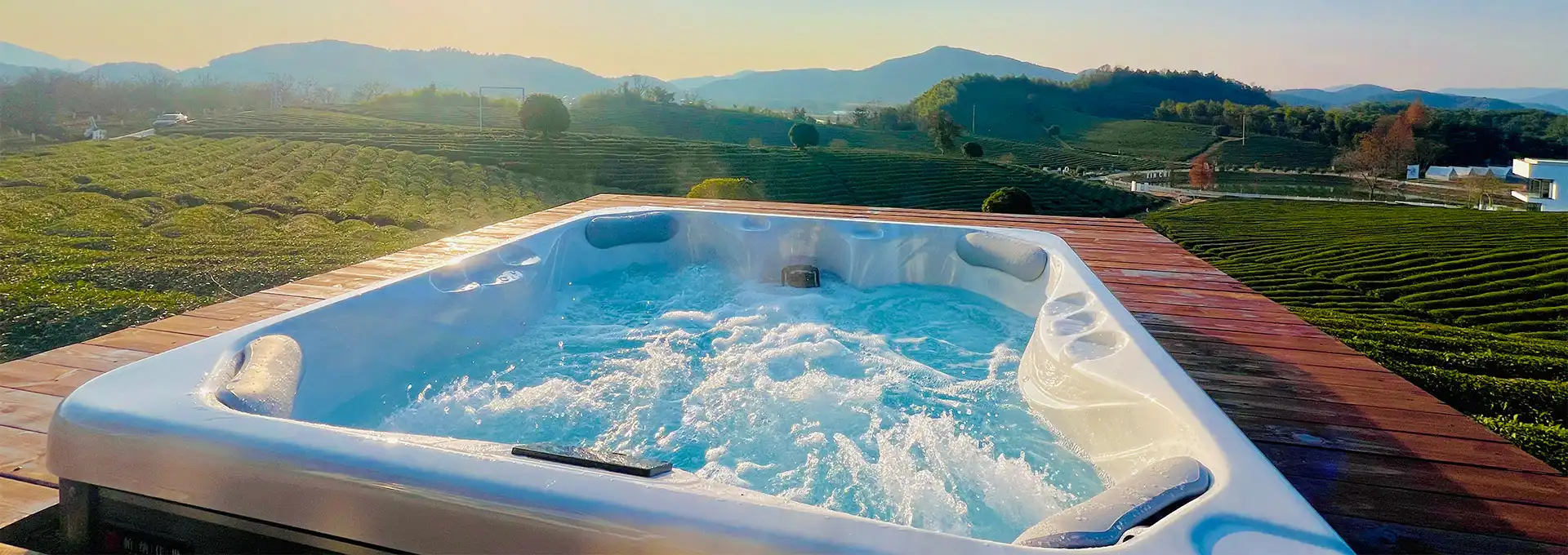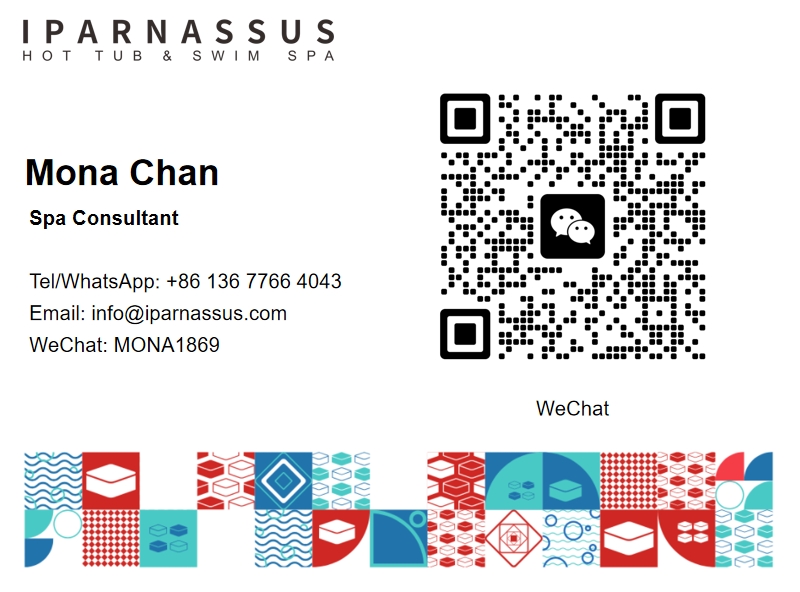The Future of Relaxation: AI-Powered Spa Controllers
2025-07-29 15:13:29
The wellness industry is experiencing a technological revolution, with artificial intelligence transforming how we approach relaxation and hydrotherapy. AI-powered spa controllers represent the cutting edge of this evolution, combining sophisticated automation with personalized wellness experiences. These intelligent systems are redefining luxury spa experiences by learning user preferences, optimizing water chemistry, and creating seamless integration between technology and tranquility. As homeowners increasingly seek professional-grade spa experiences in their personal spaces, AI-powered spa controllers are becoming essential components that bridge the gap between commercial spa excellence and residential convenience.
How Does a Spa Controller Work with AI Technology?
Smart Water Management Systems
Modern AI-enhanced spa controllers revolutionize water maintenance through intelligent monitoring and automated adjustments. These systems continuously analyze water chemistry parameters including pH levels, sanitizer concentrations, and temperature fluctuations. The spa controller utilizes machine learning algorithms to predict maintenance needs before issues arise, ensuring optimal water quality without constant manual intervention. Advanced sensors provide real-time data to the central processing unit, which then makes precise adjustments to chemical dispensers and filtration cycles. This proactive approach eliminates guesswork and reduces the time homeowners spend on spa maintenance, while ensuring consistently clean and balanced water conditions for every relaxation session.
Personalized User Experience Profiles
AI-powered spa controllers excel at creating customized experiences tailored to individual preferences and usage patterns. The system learns from user behavior, remembering preferred temperature settings, jet patterns, lighting combinations, and session durations for different family members or occasions. Through sophisticated data analysis, the spa controller can automatically prepare the spa environment based on time of day, weather conditions, or specific user profiles. This personalization extends beyond basic settings to include wellness programs that adapt to seasonal changes, stress levels, and therapeutic needs. The intelligent system creates a truly bespoke spa experience that evolves with user preferences over time.
Energy Efficiency and Predictive Maintenance
The integration of AI technology enables spa controllers to optimize energy consumption through intelligent scheduling and predictive analytics. These systems analyze usage patterns, weather forecasts, and energy rates to determine the most efficient heating and filtration schedules. The spa controller can pre-heat water during off-peak energy hours or adjust heating intensity based on upcoming weather changes. Additionally, predictive maintenance capabilities identify potential equipment issues before they result in costly repairs or system failures. This proactive approach significantly reduces operational costs while extending the lifespan of spa components and ensuring reliable performance.
What Are the Benefits of Smart Spa Controllers?
Enhanced Convenience and Remote Access
Smart spa controllers offer unprecedented convenience through mobile app integration and remote monitoring capabilities. Users can control every aspect of their spa experience from anywhere, whether preheating the spa on their way home from work or adjusting settings while already enjoying their relaxation time. The spa controller provides real-time status updates, maintenance alerts, and energy usage reports directly to smartphones or tablets. Voice control integration with popular smart home assistants further enhances accessibility, allowing users to adjust settings hands-free. This level of connectivity transforms spa ownership from a maintenance-heavy luxury into an effortless wellness solution that fits seamlessly into modern lifestyles.
Advanced Safety and Monitoring Features
Safety remains paramount in spa controller design, with AI technology enhancing traditional safety measures through continuous monitoring and intelligent alerts. These systems detect unusual temperature fluctuations, chemical imbalances, or equipment malfunctions instantly, sending immediate notifications to prevent potential hazards. The spa controller can automatically initiate safety protocols, such as shutting down heating elements or activating emergency circulation, when dangerous conditions are detected. Child safety features include smart locks, activity monitoring, and automatic shut-off timers that provide peace of mind for families. These comprehensive safety systems create a secure environment that allows users to focus entirely on relaxation and wellness.
Cost-Effective Long-term Operations
While the initial investment in an AI-powered spa controller may be higher than traditional systems, the long-term cost benefits are substantial. Intelligent chemical management reduces waste and prevents overcorrection, leading to significant savings on spa chemicals and water replacement costs. Energy optimization features can reduce heating costs by up to 30% through efficient scheduling and thermal management. The spa controller's predictive maintenance capabilities prevent expensive emergency repairs and extend equipment lifespan through proactive care. Additionally, precise monitoring prevents costly water chemistry imbalances that can damage spa surfaces or equipment, making smart controllers a wise financial investment for serious spa owners.
Can AI Spa Controllers Improve Water Quality Management?
Precision Chemical Balancing Systems
AI-driven spa controllers excel at maintaining perfect water chemistry through continuous monitoring and micro-adjustments. Unlike traditional systems that rely on periodic manual testing and large chemical corrections, these intelligent systems make small, frequent adjustments that maintain stable water conditions. The spa controller analyzes multiple water quality parameters simultaneously, understanding the complex interactions between pH, alkalinity, sanitizer levels, and calcium hardness. Machine learning algorithms improve accuracy over time, learning from past adjustments and outcomes to make increasingly precise corrections. This precision approach prevents the water quality swings common with manual maintenance while reducing chemical consumption and creating consistently comfortable bathing conditions.
Automated Filtration and Circulation Optimization
Smart spa controllers optimize filtration cycles based on usage patterns, bather load, and environmental conditions rather than running on fixed schedules. The system analyzes water quality data to determine when increased filtration is needed, such as after heavy usage or during periods of high organic contamination. The spa controller can adjust pump speeds, filter cycle duration, and water turnover rates dynamically to maintain crystal-clear water while minimizing energy consumption. Advanced systems integrate with weather data to anticipate contamination from dust, pollen, or debris, proactively increasing filtration before water quality deteriorates. This intelligent approach ensures optimal water clarity while reducing wear on filtration equipment and minimizing maintenance requirements.
Real-time Water Quality Monitoring and Alerts
Continuous water quality monitoring represents a significant advancement over traditional periodic testing methods. AI-powered spa controllers provide 24/7 surveillance of critical water parameters, immediately detecting deviations from optimal ranges. The system generates detailed water quality reports and trends, helping users understand their spa's performance patterns and identify potential issues before they become problems. Real-time alerts notify users of significant changes requiring attention, while automated responses handle minor adjustments without user intervention. The spa controller maintains comprehensive logs of all water quality data, enabling detailed analysis of system performance and supporting warranty claims or service diagnostics when needed.
Conclusion
AI-powered spa controllers represent the future of residential wellness technology, offering unprecedented convenience, safety, and efficiency. These intelligent systems transform spa ownership from a maintenance-intensive luxury into an effortless wellness solution that adapts to individual needs and preferences. Through advanced automation, predictive maintenance, and personalized experiences, AI spa controllers deliver professional-grade performance while reducing operational costs and environmental impact.
Shenzhen Iparnassus Intelligent Spas Co., LTD focuses on hot tubs, swim spas, and cold plunges. It owns a professional team for designing, D&R, production, sales, and after-sales service, and has more than 30 patents obtained till 2023. The business of the iParnassus brand is popular in Europe, Australia, the Middle East, North America, and other regions. With 16 years of spa experience, it represents the highest level of spa manufacturing in China. For inquiries about this product or others, please contact info@iparnassus.com for dedicated service.
References
1. Johnson, M.R. & Chen, L. (2024). "Artificial Intelligence Applications in Residential Hydrotherapy Systems." Journal of Smart Home Technology, 15(3), 78-92.
2. Williams, S.A., Rodriguez, P., & Thompson, K.D. (2023). "Energy Efficiency Optimization in AI-Powered Pool and Spa Controllers." International Conference on Sustainable Water Management, 234-248.
3. Anderson, J.L. & Park, H.S. (2024). "Machine Learning Algorithms for Predictive Maintenance in Aquatic Recreation Systems." IEEE Transactions on Consumer Electronics, 42(2), 156-168.
4. Davis, R.M., Kumar, A., & Brown, T.J. (2023). "Smart Water Chemistry Management: A Comparative Analysis of Traditional vs. AI-Enhanced Systems." Water Quality Research Quarterly, 28(4), 312-327.
5. Miller, C.E. & Zhang, W. (2024). "User Experience Design in Intelligent Spa Control Systems." Journal of Human-Computer Interaction in Wellness Technology, 11(1), 45-61.
6. Taylor, N.P., Wilson, D.R., & Lee, Y.K. (2023). "Safety Protocols and Risk Management in Automated Spa Control Systems." Safety Engineering in Consumer Products, 19(7), 89-103.
_1768872582663.webp)


